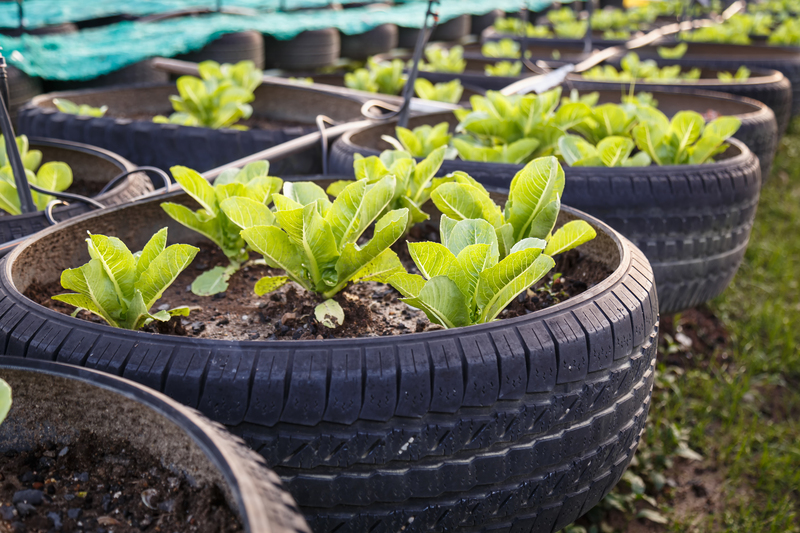Learn How to Effectively Minimize Your Green Waste
As sustainable living becomes more prominent, the need to manage and minimize green waste grows in importance. By understanding how to reduce, reuse, and recycle garden and organic waste, you contribute to a healthier environment. In this article, we will dive deep into various strategies and practices that can help you effectively manage and reduce your green waste, ensuring a smaller ecological footprint.
Understanding Green Waste
Green waste, often called organic waste, generally includes items such as grass clippings, leaves, branches, and other plant materials. This type of waste is often generated from gardening and landscaping activities. If not properly managed, it can contribute to pollution, increased landfill use, and unnecessary methane emissions.
The Importance of Reducing Green Waste
Reducing green waste not only benefits the environment but also offers several practical advantages, including:
- Decreased landfill dependency: By diverting organic waste from landfills, we reduce the volume of waste that needs processing and slow down the production of harmful methane gas.
- Enhanced soil quality: Compost from green waste can significantly improve soil health by adding essential nutrients back into the earth.
- Cost savings: By creating your compost, you can save money on fertilizers and other soil amendments.
- Sustainability: Consciously minimizing green waste aids in promoting sustainable practices within your community.

Strategies for Reducing Green Waste
Adopting small practices can make a substantial impact. Here are several techniques to help you minimize your green waste effectively:
Practice Smart Landscaping
- Select native plants: Choosing native plants means less maintenance and green waste since these plants are adapted to local climates and require fewer resources.
- Use perennial plants: Since perennials come back every year, there is less need to replace plants, resulting in reduced waste.
- Mulch your garden: Applying mulch helps retain soil moisture and reduces weed growth, leading to less waste from lawn maintenance.
Composting: Turn Waste into Resource
Composting is an excellent method for converting green waste into a nutrient-rich soil conditioner. To start composting:
- Set up a compost bin or heap: Place it in a convenient location with good drainage and exposure to sunlight.
- Add green waste: Balance high-nitrogen materials like grass clippings and vegetable scraps with high-carbon materials like dry leaves and small branches.
- Monitor and maintain: Keep the compost moist and turn it regularly to accelerate the decomposition process.
With time and patience, you will create rich compost that can be used to foster your garden's growth.
Adopt Grasscycling
Grasscycling is the practice of leaving grass clippings on your lawn after mowing. Benefits include:
- Recycling nutrients: Return nitrogen and other essential nutrients back to the soil.
- Reduced waste: Eliminate the need to bag clippings, leading to less yard waste.
- Improved lawn health: Promote healthy growth by maintaining soil moisture and nutrient levels.
Explore Composting Programs
If home composting isn't suitable, consider utilizing local composting programs or services. Many municipalities offer pick-up services for green waste or provide drop-off locations where your waste can be processed into compost or mulch.
Reduce Food Waste
Food scraps contribute significantly to green waste. Minimize food waste by:
- Meal planning: Create detailed meal plans to reduce excess food and spoilage.
- Storage and preservation: Use proper storage techniques to prolong the life of fresh produce.
- Full utilization: Use peels, stems, and other parts of fruits and vegetables in creative ways, such as making broths.

Incorporating Green Waste Practices Into Your Life
The long-term benefits of successfully managing your green waste go beyond immediate environmental impact. It promotes a lifestyle of conscious consumption and sustainable living. Here are some tips for incorporating these practices:
Educate Others
Share your knowledge and encourage your community, friends, and family to adopt effective green waste management strategies. Hosting neighborhood composting workshops can be a great starting point.
Monitor Your Progress
Keep track of the amount of green waste you produce and the reduction you achieve over time. This reflection can motivate you to continue improving your practices.
Experiment and Innovate
Continue exploring new methods and technologies for reducing green waste. Tailor these strategies to fit your needs and the unique environment you inhabit.
Conclusion: The Impact of Minimizing Green Waste
The concerted effort to minimize green waste can significantly aid environmental health and sustainability goals. From composting and grasscycling to smart landscaping, there are numerous ways to contribute to the reduction of organic waste. Sustainable living begins with informed decisions, and by implementing the practices outlined in this article, you are taking a crucial step toward a more environmentally friendly lifestyle.
Start your journey today by choosing one or more of these strategies; every small change contributes to larger environmental benefits. Together, we can work towards a sustainable future by learning how to effectively minimize green waste.